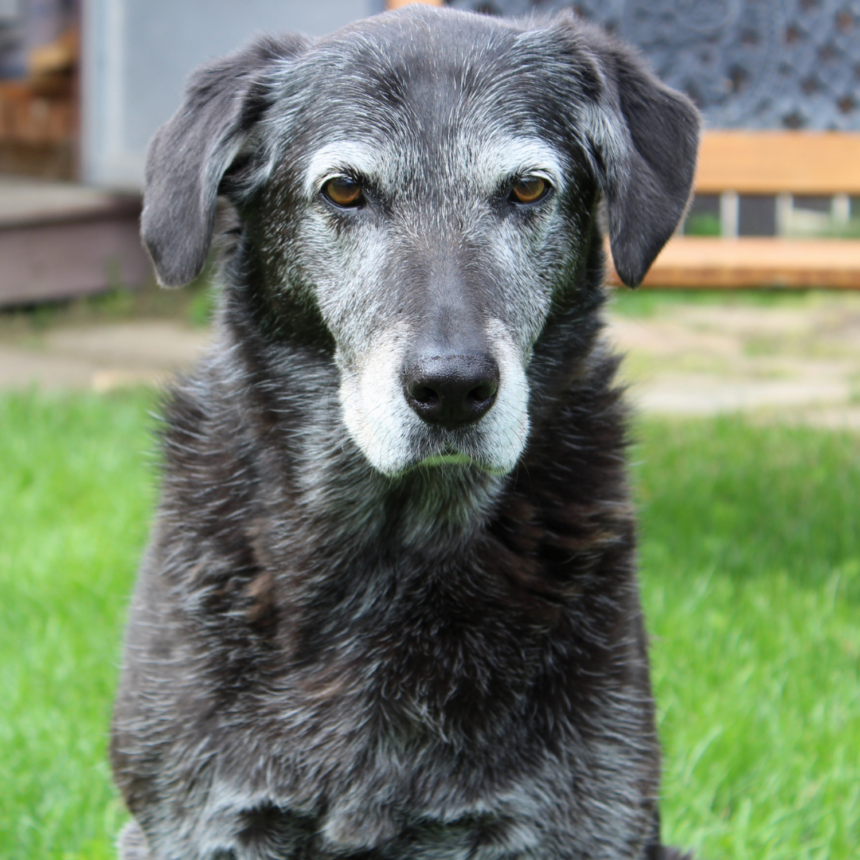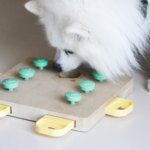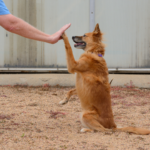Introduction
As our beloved canine companions age, their needs change, requiring specialized care to ensure their golden years are filled with comfort and happiness. This article aims to guide pet parents through the essentials of caring for their senior dog, offering valuable insights and practical solutions for this crucial phase of their lives.
Understanding Senior Dog Health
As our canine companions gracefully enter their golden years, it’s crucial for pet parents to be attuned to the specific health challenges that accompany aging. Senior dogs, like their human counterparts, often encounter conditions such as arthritis, cognitive decline, and dental issues. This article sheds light on these common health concerns and emphasizes the paramount role of regular veterinary check-ups in ensuring their well-being.
Arthritis: Arthritis is a prevalent concern among senior dogs, affecting their joints and causing discomfort. As dogs age, wear and tear on their joints lead to inflammation and stiffness. Common signs include limping, difficulty getting up, or reluctance to climb stairs. To address arthritis, providing joint supplements, maintaining a healthy weight, and engaging in low-impact exercises can significantly improve mobility and comfort.
Cognitive Decline: Cognitive decline, often referred to as canine cognitive dysfunction (CCD), is akin to dementia in humans. Symptoms may include disorientation, changes in sleep patterns, and altered behavior. While it’s a natural part of aging, there are strategies to support cognitive function. Incorporating brain-stimulating activities, a balanced diet rich in antioxidants, and regular veterinary check-ups can contribute to cognitive well-being.
Dental Problems: Dental issues, such as periodontal disease and tooth loss, are common in senior dogs. Poor oral health can lead to pain, difficulty eating, and other systemic health problems. Implementing a regular dental care routine, including tooth brushing and providing dental chews, helps maintain healthy teeth and gums. Professional dental cleanings may be necessary to address advanced dental issues.
Navigating Behavioral Changes
Increased Anxiety: Senior dogs may experience heightened anxiety due to various factors such as changes in their environment, diminished sensory perception, or underlying health issues. Recognizing signs of anxiety, including restlessness, excessive panting, or withdrawal, is crucial. Create a calm and predictable routine to provide a sense of security. Additionally, consider incorporating comforting items like familiar blankets or soothing music in their environment.
Aggression and Irritability: Behavioral changes in senior dogs can sometimes manifest as aggression or irritability. This can be a response to pain, discomfort, or cognitive decline. If your senior dog displays signs of aggression, consult with a veterinarian to rule out any underlying health issues. Implement positive reinforcement techniques, rewarding calm and non-aggressive behavior, to reshape their responses and strengthen the bond between you and your aging companion.
Consultation with a Veterinarian: Behavioral changes in senior dogs often have underlying health considerations. Regular veterinary check-ups are crucial to identify and address any physical or cognitive issues contributing to altered behavior. Your veterinarian can offer guidance on potential treatments or adjustments to enhance your senior dog’s well-being.
Tailoring Nutrition for Aging Canines
Specialized Senior Dog Food: Transitioning to specialized senior dog food is a pivotal step in meeting the unique dietary needs of aging dogs. These formulations are carefully crafted to address common concerns such as joint health, cognitive function, and digestive issues. With reduced calorie content and essential nutrients like antioxidants and omega-3 fatty acids, senior dog food provides comprehensive support tailored to the specific challenges of aging.
Supplements for Optimal Health: Supplements play a vital role in supporting senior dogs’ well-being. Omega-3 fatty acids, sourced from fish oil, contribute to joint health, alleviate inflammation, and support cognitive function. Glucosamine and chondroitin sulfate aid in maintaining joint flexibility and reducing the discomfort associated with arthritis, a common ailment in older dogs.
Challenges: Obesity and Weight Loss: Senior dogs often face challenges like obesity or weight loss, impacting their quality of life. Obesity exacerbates joint issues, while unexplained weight loss can be indicative of underlying health problems. Tailoring the diet to address these challenges is crucial for maintaining a healthy balance.
Practical Tips for a Healthy Diet:
- Regular Vet Check-ups: Schedule regular veterinary check-ups to monitor weight and discuss any changes in your dog’s diet.
- Portion Control: Adjust portion sizes to match your senior dog’s activity level, preventing excess weight gain or loss.
- Hydration: Encourage water intake to support kidney function and overall well-being.
Creating a Comfortable Living Environment
Orthopedic Bedding: Investing in orthopedic bedding is a game-changer for senior dogs dealing with arthritis or joint pain. These specialized beds provide extra support, relieve pressure on achy joints, and promote a restful night’s sleep. Consider placing these beds in your dog’s favorite resting spots to provide comfort during naps and overnight.
Ramps and Steps: Mobility challenges are common among senior dogs, making it challenging for them to access elevated areas like sofas or beds. Installing ramps or steps allows them to move comfortably without straining their joints. These aids are especially beneficial for smaller breeds or those with arthritis, ensuring they maintain their independence.
Slip-Resistant Flooring: Senior dogs may struggle with stability on slippery surfaces. Consider using rugs or slip-resistant mats in high-traffic areas to provide better traction. This simple adjustment minimizes the risk of slips and falls, fostering a safer environment for your aging companion.
Elevated Food and Water Bowls: Arthritis or neck pain can make it uncomfortable for senior dogs to bend down for meals. Elevated food and water bowls minimize the need for excessive bending, promoting better posture and making mealtime more enjoyable.
Adequate Lighting: Diminished eyesight is common in senior dogs, affecting their ability to navigate in low-light conditions. Ensure your living space is well-lit, especially in areas your dog frequents. Adequate lighting reduces the risk of accidents and helps your senior dog feel more confident and secure.
Mental and Physical Stimulation
Puzzle Toys and Games: Engaging your senior dog in mentally stimulating activities is vital for preserving cognitive function. Introduce puzzle toys that dispense treats, requiring your dog to strategize and problem-solve. These toys not only provide mental stimulation but also offer a rewarding experience that keeps them entertained.
Gentle Exercise Routine: While the energy levels of senior dogs may decrease, regular, gentle exercise remains crucial for their overall health. Tailor your dog’s exercise routine to their abilities, incorporating short walks, swimming, or even gentle play sessions. Exercise helps maintain joint flexibility, muscle tone, and a healthy weight, contributing to a more comfortable and agile senior life.
Interactive Feeding: Transform mealtime into an interactive and stimulating experience. Use slow-feeder bowls or hide small portions of their food around the house or in puzzle feeders. This not only encourages mental engagement but also slows down their eating, preventing digestive issues and promoting a healthier weight.
Comfortable Exploration: Create an environment that encourages gentle exploration. Arrange safe spaces where your senior dog can investigate new scents, textures, and sounds. This type of sensory engagement stimulates their minds and provides a positive outlet for their natural curiosity.
Adapted Training Sessions: Continue to engage your senior dog in light training sessions that reinforce basic commands or introduce new tricks. The mental stimulation from training exercises keeps their cognitive functions sharp and reinforces the bond between you and your aging companion.
Conclusion
In conclusion, caring for a senior dog involves a holistic approach encompassing health, nutrition, environment, and emotional well-being. By understanding and meeting their evolving needs, pet parents can ensure their senior companions enjoy a high quality of life in their golden years.









